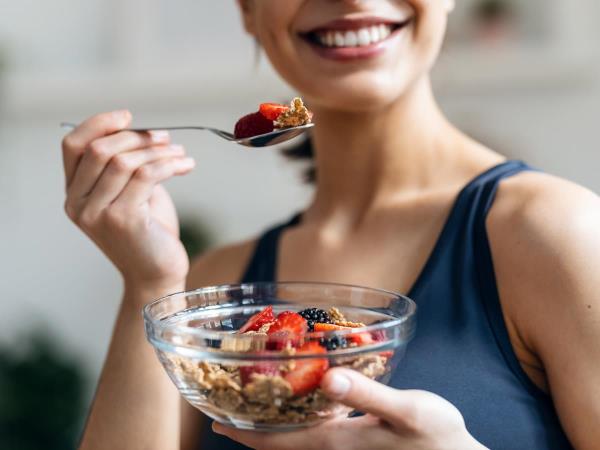How was the study conducted?
Each of the women entered into a mobile application for seven days during two different periods, first at the beginning of the study, then a year later, what she ate, when, and in what quantity. This was not just a regular survey, but a detailed dietary trace. The researchers then used the cardiovascular health assessment system developed by the American Heart Association called Life's Simple 7.
This is a set of seven key factors that significantly impact the health of your heart:
- Smoking,
- Physical activity,
- Diet,
- Body weight,
- Blood pressure,
- Blood sugar level,
- Cholesterol.
And what did they discover?
Late dinner: Poor metabolism and increased risk of heart problems
85% of the women consumed the majority of their daily calories after 6 p.m. But here's the catch: those who consumed a higher percentage of their food after this time had worse results in almost all heart health indicators.
For every additional 1% of calories consumed after 6 p.m., heart health slightly worsened. To put it more plainly: if someone typically ate 2000 calories a day, 1% would be 20 calories, which is just one cookie or a piece of bread with cheese! Even such a small change, if it happens regularly, affects the body.
Women who had late dinners had:
- higher blood pressure,
- higher body mass index (meaning more weight relative to height),
- poorer control over blood sugar – leading to an increased risk of diabetes.
So, if we eat pizza or dessert at 9 p.m., the body processes this food more slowly, and it tends to store the excess energy as fat instead. And this is where problems begin.
Why is this especially important for women?
Female bodies are somewhat different from male bodies, mainly due to hormones such as estrogen and progesterone, which affect metabolism, blood pressure, and glucose regulation. According to some studies, the effects of late eating in women are more noticeable and pronounced than in men.
A study published in the Journal of Clinical Endocrinology & Metabolism showed that women who dined late showed higher insulin resistance and poorer glucose control compared to women who dined early – even with just a two-hour difference!
What do traditional practices say?
Looking back, we quickly realize that people once had much more structured dietary habits. In many households, they ate three times a day: breakfast around 6 a.m., lunch between 11 a.m. and 1 p.m., and dinner around 5 p.m. In the evening, they did not eat more than soups or dairy dishes, as it was believed that the body needed rest at night, not additional weight in the stomach.
Even in Ayurveda, the ancient Indian medicine that many consider the mother of all natural treatments, the main meal should be around noon when the digestive power is strongest. In the evening, only light food that does not burden the body should be consumed.
And lo and behold, science confirms this today!
How many people actually dine late?
According to data from the American National Institute of Health from 2023, as many as 60% of adults consume more than 30% of their daily calories after 7 p.m. In Europe, exact figures are not available, but several studies indicate that as many as 70% of people have dinner after 7 p.m., with 25% of them dining after 9 p.m.
Many do this because they simply do not have time for a proper meal during the day (work, commuting, children, errands...). And thus, dinner becomes the main meal of the day. But the body does not take this enthusiastically.
What can you do?
You don't have to completely stop having dinner after 6 p.m. now, but if you want a healthier heart, better sleep, and less risk of diseases, we strongly recommend the following:
- Try to have the main meal before 6 p.m.
- Opt for light meals in the evening - vegetable soups, steamed vegetables, some yogurt or cottage cheese.
- Avoid sweets, fatty foods, and alcohol after 8 p.m.
Why is sleep important too?
By the way, poor sleep is directly linked to an unhealthy heart. If you eat late, the body finds it harder to fall asleep and rest poorly. According to the American Heart Association, people who sleep less than 6 hours per night and have late dinners have a 40% higher risk of heart disease.
Final thought
It may seem that one late dinner doesn't mean much. But if it becomes a habit, it can trigger a chain reaction that can affect your heart, weight, and well-being in the long run.
If possible, eat earlier. Your heart will thank you, and your sleep will be more peaceful. Let your plate be full of health at the right time!









 Would you like to be informed about news on the website?
Would you like to be informed about news on the website?

